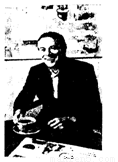题目内容
Here are a few practical apps that can help you with your studies, and beyond.
MyHomework
Price: Free
Platform: iOS and Android
As you star your new term, let the planning app MyHomework create a personalized study schedule. Rank as one for the best homework management apps by USA Today, this app allows you to prioritize(排序)assignments by color-coding subjects. It also reminds you of every single deadline and upcoming test you have. MyHomework is not only for smart phones but also for Apple Watch.
Notability
Price: 18 yuan
Platform: iOS
Taking good notes is important to good results. As a result, one note-taking app, Notability, is gaining popularity among students. This app allows users to take handwritten notes on touch screens and type essays. Plus, Notability users can easily share files with classmates through e-mail or cloud services like iCloud.
Sleep Cycle
Price: 6 yuan
Platform: iOS and Android
For students struggling to wake up on time during school days, Sleep Cycle can be your lifesaver. It cleverly records your sleep. After you wake up, the app shows your sleep quality through easy-to-read graphics(图表). Even better, Sleep Cycle has an intelligent wake-up mode. It wakes you up when you are in your lightest sleep state with the help of soft music. This stress-free wake-up call can potentially improve your daily productivity.
MyMoney
Price: Free
Platform: iOS and Android
MyMoney, a Chinese money management app, can help you achieve financial independence. This popular app allows you to add up all your accounts including campus(校园)cards and transportation cards. And it tracks your every expense(开支)to help you understand your spending habits. If any of your accounts is low, MyMoney will alarm you.
1.What can we know about Notability?
A. It’s a drawing app B. It can run on Apple Watch
C. It can be used to share notes D. It helps users organize homework
2.Which of the following helps to improve users’ spending habits?
A. MyHomework B. Notability
C. Sleep Cycle D. MyMoney
3.What do the four apps have in common?
A. They are all free of charge B. They are intended for students
C. They require Android platform D. They all help users with studies
 激活思维智能训练课时导学练系列答案
激活思维智能训练课时导学练系列答案

